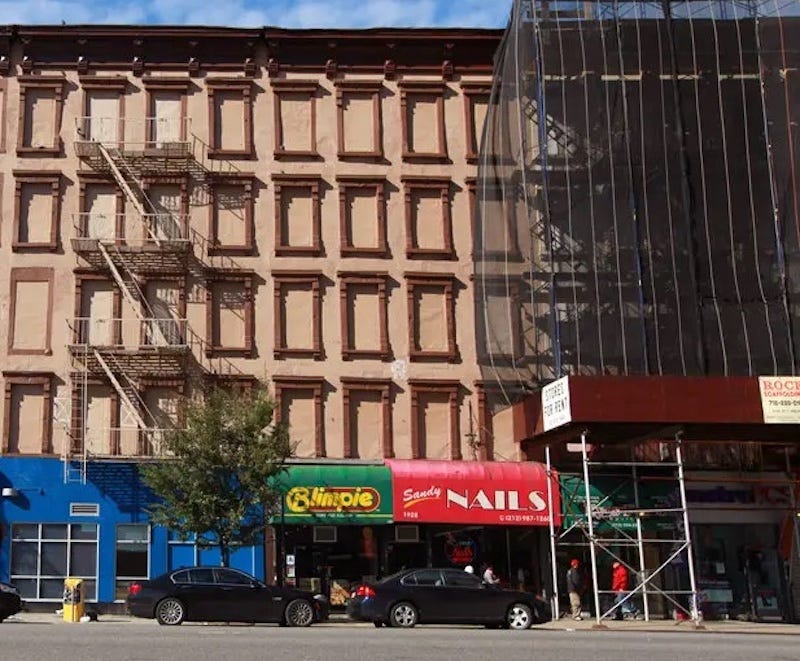Imagine you own an apartment building. Whether it be six units or sixty, it's yours, and you offer the apartments for rent to people looking for a place to live.
In a reasonably free market, assuming your units conform to building codes, you and your tenant agree on terms, a lease gets signed, you get rent, your tenant gets a place to live.
In many big cities, that contract may have a third participant - the government. That third party specifies the rent you can charge and imposes additional requirements on the apartments themselves - including things you have to do in order to re-lease the unit if a tenant moves out.
Now, imagine a decades-long tenant departs, and you need to spend a sizable chunk of money to conform the apartment to new rules. But, that third party tells you that you cannot raise the rent enough to recover your outlay. You might grind your teeth and go ahead with the renovations anyway after doing the math... or you might, as has happened forty thousand times (and perhaps more) in New York City, conclude you're better off not renovating and leaving the unit empty.
There are mountains of evidence that rent control laws are counterproductive, that they exacerbate rather than remediate housing shortages, and they benefit a relative few at the expense of many, and that they, long-term, actually benefit the wealthy rather than the poor by incentivizing luxury construction and disincentivizing construction for everyone else.
Despite this, and because politicians care more about appearances than about results, many big cities impose more restrictions, then point fingers at "greedy" landlords and developers when the shortages continue. They stoke animus in a system already heavily stacked in favor of tenants by finding the occasional example of "heartlessness," where someone who's lived in an apartment for decades would be priced out of it but for rent control.
Housing is one of those matters where people feel a vast sense of entitlement to others' property. Where someone who stops paying rent will with no shame declare "this is my home, why should I be evicted?!", and where politicians and advocates line up the power of both law and public opinion to effectively steal someone's property.
For theft is exactly what it is, even when the government does it.
The Constitution has a bit about such matters. It's the "takings clause" of the Fifth Amendment, and reads:
Nor shall private property be taken for public use, without just compensation
If you own an apartment, and the government subsequently changes the rules so that it can no longer be used as an income-producing asset, does that count as a "taking?"
The Supremes may soon let us know.
As detailed here, the Court is being asked to weigh in, and if it grants certiorari, we could witness another seismic ruling next year. And another collectivist baying at the moon as to the "illegitimacy" or radicalization of the Supreme Court, a concerted effort to make the Court an election issue, and an effort to pack the court by adding a sheaf of liberal Justices should the Dems win the WH and hold the Senate in 2025.
Meanwhile, people who want affordable housing are stuck hoping they get lucky. People who want to build affordable housing are scared away by massive market distortions against them and a promise for endless hostility to their efforts and desire to make a buck or two for their efforts. And people who own apartments that could serve wannabe tenants conclude they’re better off leaving them vacant.
Apartment seekers that don't find success in the rent-control crapshoot are left lamenting their plight. Sadly, such Best-and-Brightest as those at the New York Times choose to highlight their lament rather than inform their readers of its root cause:
Too much government.





This is a serious problem in Ontario, Canada. As a landlord there (duplex), I was for a very long time unable to raise rents beyond a set maximum. The only way to get past it was to actually move into the unit, do some upgrades, and then re-rent it. That obviously doesn't work for owners of larger buildings.
No one is entitled to other peoples’ stuff. I don’t know why that that concept is so difficult to understand.